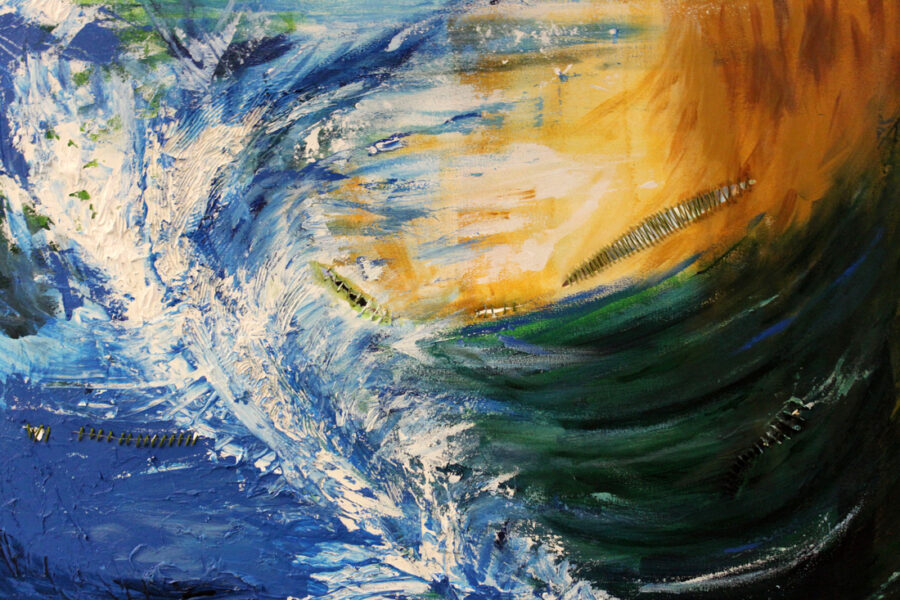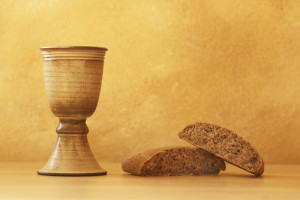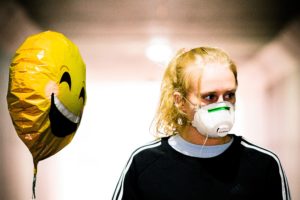Almost two years ago, I married a citizen of the Russian Federation; a daughter of Lenin’s dream for the Russian people—the Soviet Union.
Upon learning that I would be living in Russia for an extended period, my knee-jerk reaction was to find an English speaking, Reformed congregation that resembled mine in the states. To be sure, several Protestant churches have reestablished a presence in Russia (many are Lutheran, after the traditions of their Scandinavian neighbors, but Baptist congregations are growing steadily). After a month-long visit, however, I convinced myself rather to use this opportunity to learn about the Orthodox Church in Russia—its history, theology, and public perception. In addition, I wanted to know what currently prevents Christ’s church at large from reaching out to the Russian people. I hope that my limited experience may inspire you to pray for its growth.
My ecumenical journey began before our wedding, during which time I had exposed my naïveté in thinking that words like ‘church’, ‘mercy’, ‘worship’, or even ‘god’ crossed cultural boundaries. In modern Russian connotation, ‘church’ is a building that represents a social organization—one that typically feeds off the fears and frailty of the people. Nonetheless, a church ought to be distinct architecturally, and any congregation that meets elsewhere (e.g. a school) appears cultic. ‘Mercy’ is an unwelcome sign of weakness that is foreign to the residual communist mentality, in which civic duty and the public welfare require that all give and take according to one’s ability and need. ‘Worship’ was expressed publicly to the state for its provisions through hymns and patriotism, but privately in all religious matters. ‘God’ is an undefinable term—a fierce vacuum that vaguely represents the lost glory of the Soviet Union. In any case, ‘gods’ are not personal and loving, but rather ephemeral promises that are often proven false. How then could it be ‘good news’ that leads one to worship God together with the church for His mercy?
To overcome this barrier, it is vital to relive the history that shaped Russian language and thus public perceptions of the church. A short walk from our apartment in St. Petersburg, the Alexander Column watches over Palace Square. Originally constructed to commemorate the victory over Napoleon’s invasion, the symbolism behind an angel crushing a serpent with a cross is sufficiently clear: God continues to protect the Russian Empire from the enemies of His people. On November 7, 1917, the army sworn to protect the Emperor and the city seized all municipal property, stormed the Winter Palace, and arrested the provisional government. Some eight months later, Emperor Nicholas II and his family were executed for “countless bloody, violent acts against the Russian people”.
In the years to follow, Soviet officials worked to undermine the influence of the Orthodox Church. Any church property that escaped destruction was nationalized and converted to use as warehouses or (particularly during the war) morgues, and many priests were executed or forced to flee. Perhaps guilty by association, the Orthodox Church would come to represent the parasitic accumulation of wealth through exploitation of the common worker. In its place, the faithful Russian learned his/her dependence on the State, which made no distinction between nobility and peasantry, but rather provided all with health, wealth, education, morality, and especially purpose—the latter of which was gained through obedience to a new gospel and a new savior.
Despite its fall more than 20 years ago, everywhere today can be felt Vladimir Putin’s sentiment that “Those who don’t miss the Soviet Union, have no heart; those who want it back, have no brain.” This simple statement profoundly explains the vacuum that exists in the heart of many Russians, who desire strongly to find a meaningful identity in their own history. Was the revolution good or bad for Russia? Does God still protect Russia from His enemies? Who or what is ‘God’?
If you have a passion for the gospel, I hope you will look toward Russia. There are a few characteristics that explain why the tough-crusted soil is still fertile beneath:
1. The last century of Russian history defines suffering in a way that Americans cannot understand. Tens of millions were lost to brutal wars (including the grandfather of my mother-in-law, who received word only 16 years after the fact), as well as to famines that often resulted in cannibalism. Millions more have fled the country under threat of death or simply hopelessness. Even today, the country is rife with corruption, low wages, and poor living standards. State and church alike have lost credibility to provide for the people, many of whom have taken up a pseudo-American individualism. Nonetheless, Russians take pride in their hospitality. The best way to share the gospel here, perhaps, is simply to act it out and give community service a true hope with meaningful effect.
2. Over the past 10 years, the Russian economy has been the fastest growing in the world. Consequently, many have found new hope in a market capitalism and consumerism that we know all too well. If you believe in the vanity of such hope, then you will immediately recognize the necessity of a gospel-oriented eschatology, which alone makes earthly treasures wonderful, but also condemns the economic exploitations associated with the church under Imperial Russia. Jesus’ critique of the Pharisees would resonate well with public perceptions of the church here, but it has yet to gain a face. The Orthodox Church already does much to care for the widow and the orphan, but understandably lacks resources and is constantly tempted with power.
3. Amid the chaos of the Reconstruction Era, the Orthodox Church swiftly regained at least superficial status in Russia (even the President is televised attending the Christmas service). Although most Russians identify themselves today as “Russian Orthodox”, the label more commonly means “I am Russian, but not Muslim”. It is a strange phenomenon, therefore, that in Russia, many Christians are more atheistic in practice, and confused theological amalgamations between mysticism, paganism, and Orthodox Christianity abound within the population.
My ecumenical journey culminated with my attending worship at one of the few cathedrals in Samara, Russia to survive the Soviet era. Orthodox theology is thoroughly incarnational, and the service involves every one of your senses. One can smell the presence of God’s Spirit, hear the angelic choirs, and feel the groaning of the earth (the 2-hour service is standing room only). Above all, one sees blessed communion with God barred and then opened through the iconostasis, which recaptures redemptive history. Inside of the church, the walls are covered with icons of past saints and biblical story, reminding its patrons that the church itself exists in history, and the building in which you worship is the very incarnation of that heavenly assembly—it is the temple of God. Given my Protestant upbringing, I very much sympathize Turbo Qualls’ sentiments regarding art in the church.
After the service, we asked the priest whether he’d be willing to meet with an American Protestant wanting to study Orthodox theology. Though a little surprised by the strange request, he invited us in for cookies and tea. We discussed theology for several hours, during which he gave some of the simplest, yet most elegant explanations of basic Christian doctrine. Near the end of our discussion, he smiled and commented:
“It seems you are Orthodox at heart. You only need practice.”
Pray for the church in Russia. Whatever you offer will not go to waste here.
–––––––––––––
Jonathan Baker is currently a Ph.D. student in geology and holds M.S./B.S. degrees in the same. The focus of his dissertation research is the use of stable-isotope geochemistry to characterize mid-Holocene climate change and modern climate dynamics of the Volga Basin and Izhora Plateau (Russia). Twelve years ago, he developed a passion for the Earth sciences while studying scientific questions raised by proponents of Young-Earth Creationism. His academic journey is recounted by his blog, Questioning Answers in Genesis, wherein he discusses geological and science/faith topics in light of the Young-Earth movement. In his spare time, he enjoys studying theology, literary criticism, and Russian language. He currently lives with his wife in St. Petersburg, Russia.





4 Comments
Leave your reply.